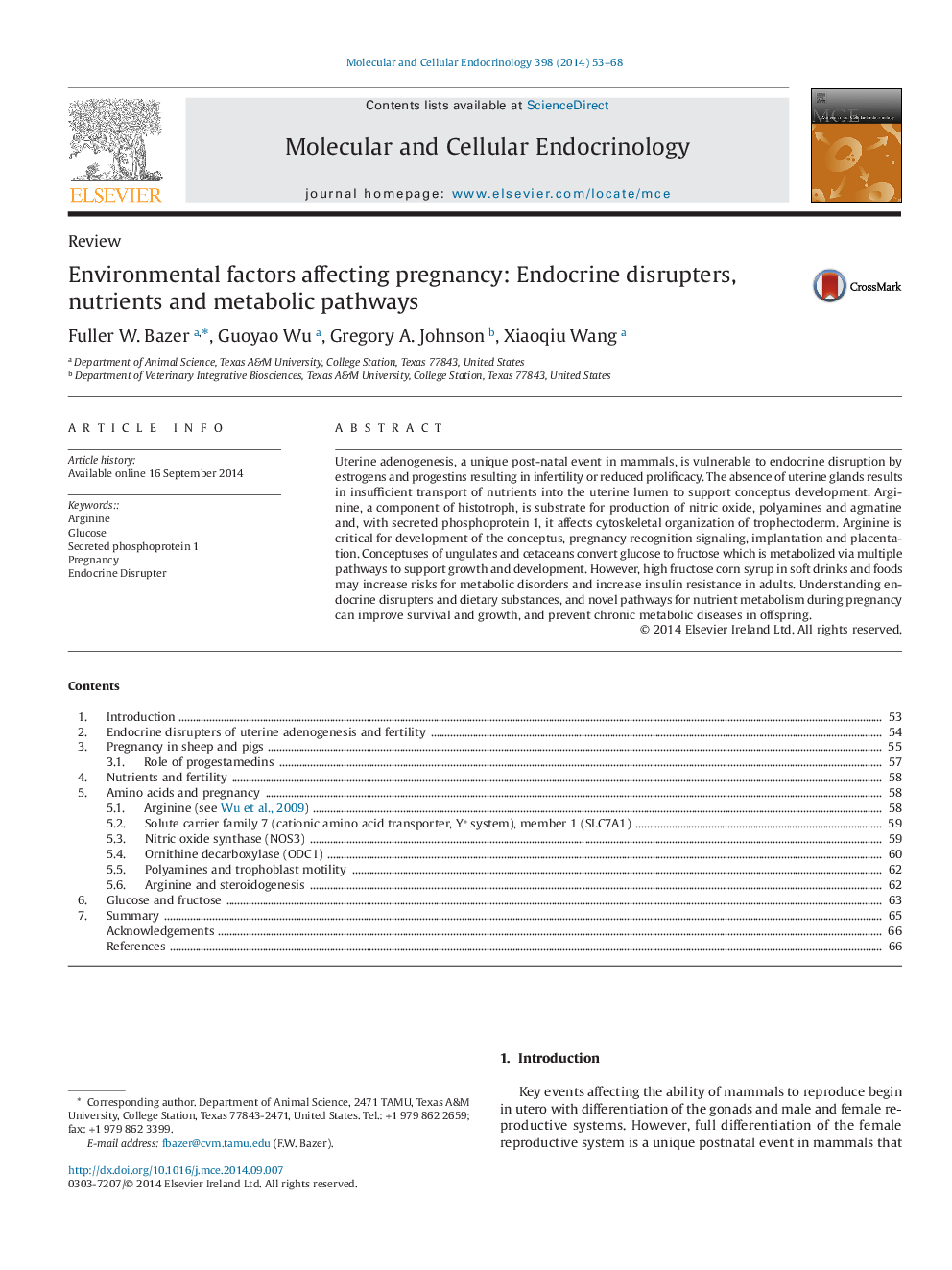| Article ID | Journal | Published Year | Pages | File Type |
|---|---|---|---|---|
| 2195918 | Molecular and Cellular Endocrinology | 2014 | 16 Pages |
•Uterine adenogenesis, a unique post-natal event in mammals, is vulnerable to endocrine disruption by estrogens and progestins resulting in infertility or reduced prolificacy.•The absence of uterine glands results in insufficient transport of nutrients into the uterine lumen to support conceptus development.•Amino acids in the diet or synthesized de novo, as well as glucose in the diet or used for synthesis of fructose are transported into the pregnant uterus and metabolized via multiple pathways to support growth and development of the conceptus during pregnancy.•Understanding endocrine disrupters and dietary substances, and novel pathways for nutrient metabolism during pregnancy can improve survival and growth, and prevent chronic metabolic diseases in offspring.
Uterine adenogenesis, a unique post-natal event in mammals, is vulnerable to endocrine disruption by estrogens and progestins resulting in infertility or reduced prolificacy. The absence of uterine glands results in insufficient transport of nutrients into the uterine lumen to support conceptus development. Arginine, a component of histotroph, is substrate for production of nitric oxide, polyamines and agmatine and, with secreted phosphoprotein 1, it affects cytoskeletal organization of trophectoderm. Arginine is critical for development of the conceptus, pregnancy recognition signaling, implantation and placentation. Conceptuses of ungulates and cetaceans convert glucose to fructose which is metabolized via multiple pathways to support growth and development. However, high fructose corn syrup in soft drinks and foods may increase risks for metabolic disorders and increase insulin resistance in adults. Understanding endocrine disrupters and dietary substances, and novel pathways for nutrient metabolism during pregnancy can improve survival and growth, and prevent chronic metabolic diseases in offspring.
